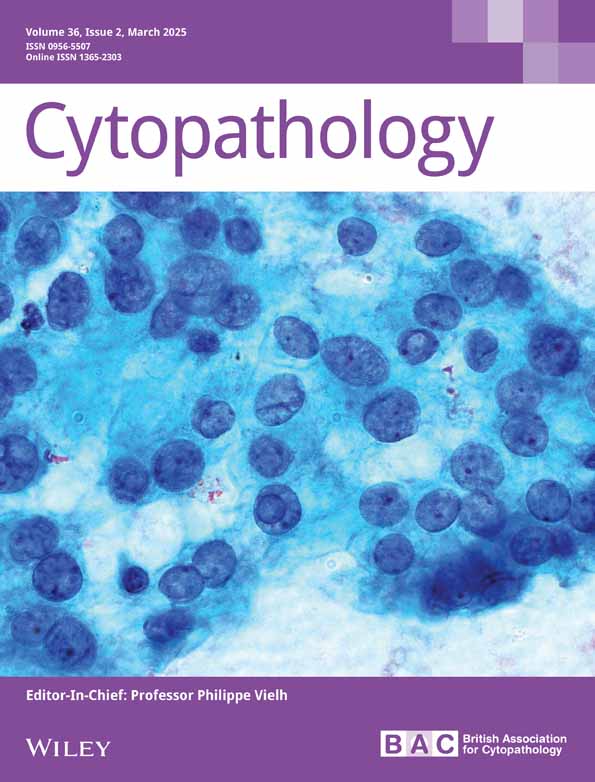Lymphocytic-rich effusion
Abstract
Cytopathology plays a crucial role in the diagnosis and management of lymphocytic effusions, which are fluid collections rich in lymphocytes often associated with conditions like infections, malignancies, and autoimmune diseases. By examining the cytological features of the cells present in the effusion, cytopathologists can help distinguish between benign and malignant processes, identify specific infectious agents, and provide insights into underlying disease mechanisms. This information is vital for guiding treatment decisions and monitoring disease progression, making cytopathology an essential tool in the clinical evaluation of lymphocytic effusions.
CONFLICT OF INTEREST STATEMENT
The authors have no conflict of interest to declare.
Open Research
DATA AVAILABILITY STATEMENT
Data sharing is not applicable to this article as no new data were created or analysed in this study.




